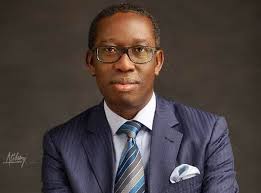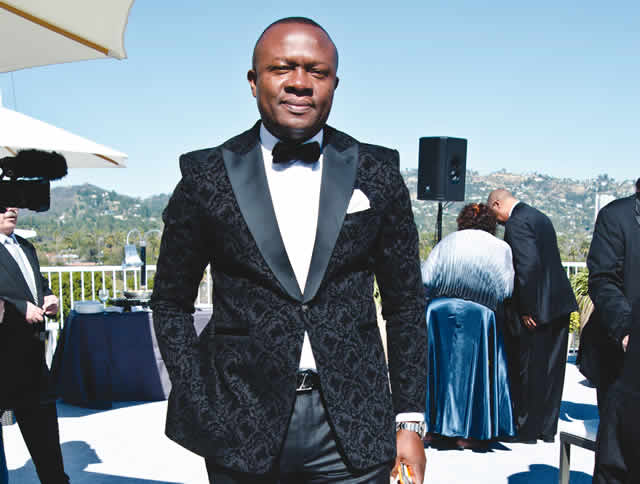There have been rising concerns among shareholders and stakeholders of the Nigerian Telecommunication industry on how ready the Nation, especially the Agency which supervises the Communication sector, Nigeria Communications Commission (NCC) is for the much anticipated Fifth Generation (5G) technology.
The paradigm shift experienced in mobile operator deployment from Long Term Evolution Advanced (LTE-A) to fourth generation (4G) networks is one that has called for stakeholders’ quest for the 5th Generation network in Nigeria. With the completion of the 3GPP Release 15 standards supporting-Non-Standalone 5G‖ in late 2018, attention has shifted to Standalone 5G, whilst operators across the globe continue to accelerate deployment of 5G based on the latest specifications.
Though, there is currently no 5G network or technology available in Nigeria, last year, the NCC gave permission for MTN to test the possibilities of 5G technology in three major cities — Lagos, Abuja and Calabar. In fact, stakeholders have stressed that the country cannot wait any longer to embrace the revolution.
Therefore, recently, Huawei and MTN had the first 5G demo trial in Abuja, which provided a glimpse into a range of 5G use cases and applications at a test Lab, designed to show proof-of-concept. It afforded on-lookers a glimpse into an artificial-intelligence powered goalie; they immersed themselves in a high-speed, low-latency virtual reality gaming world; experience ultra-high speed streaming and downloads on 5G devices; and engage in discourse with life-like holographic projections.
From the glimpse, 3D holographic communication has potential applications for education, medical imaging, video conferencing and gaming, and requires about four times as much data as a streamed 4K video. This means that 5G is best suited to support this kind of application on a mobile network and to enable its use. It also demonstrates how 5G has the potential to support key socio-economic objectives Nigeria has set for itself, and to be a key contributor to the emergence of a fully digital economy.
MTN explained that 5G will enhance technological development because of the extremely fast transfer rate of large quantities of data. The firm said 5G is designed to keep self-driving cars aware of one another, stream virtual and augmented reality experiences; allow delivery drones to function safely and efficiently. Overall, it enables interconnected devices for instant communication.
The taste in a pudding, makes one crave for more. After experiencing the itches and the smooth services provided by the previous generations of technologies, which includes 2G, 3G and 4G, Stakeholders believe there is still much to be enjoyed in Nigeria from the 5G technology. Most especially when it is running in other countries.
The potential of 5G for sustainable growth cannot be overstressed. If the country could manage the potential challenges, the deployment of 5G is very critical to our economy, because of so many advantages 5G portrays,including latency, speed and many more.
That being said, the Nation needs to create an enabling regulatory framework that would protect telecommunications infrastructure, declaring them as ‘critical national infrastructure’. Considering the high damage done on infrastructure across the country.
NCC under the leadership of the Executive Vice Chairman and Chief Executive Officer, NCC, Prof. Umar Garba Danbatta, has affirmed that Nigeria will subscribe quickly to the enhanced mobile broadband application. 5G rollout, no doubt, is now a global trend and challenge. With a focus on the Nigeria market, it must be stated here that when introduced, it would provide solutions to guide Nigerian mobile operators on pitfalls and barriers to entry. And, it has been stated that NCC has given permission to allow smooth transitioning from 4G to 5G technology in Nigeria.
With Nigeria conspicuously missing in past industrial revolutions, the benefits of the current Fourth Industrial revolution, seen as the era of technology advancement, should not elude it.
According to observers in the industry, 5G is a transformational change from 4G. 5G has the potential to provide 20 times faster data speeds and carries a massive amount of data for a large number of simultaneous users. So, users in high-density areas like airports, stadiums or urban areas can still experience the fast speeds and low latency of 5G services.
Industry association, 3GPP, defines any system using ‘5G NR’ software as ‘5G’, a definition that came into general use by late 2018. Others may reserve the term for systems that meet the requirements of the ITU IMT-2020.
Apart from the super speed that comes with it, 5G potentially supports medical imaging, video conferencing, and gaming, 3D holographic communication, and required low latency that will support this kind of application on a network.
Stakeholders have stressed that missing the 5G opportunities will be a big developmental challenge, which the country may not be able to recover from in the years to come.
Virtual realities, augmented realities, streamed Blu-ray quality video, driverless cars, drones and Internet of Things (IoT). All of these technologies require the extremely accurate and near-instantaneous transfer of large quantities of data. 5G is programmed to do all that.
Taking a cue from the past, where GSM service in the country went from being only for the rich to now when everyone holds a phone; there was a time when GSM was only for the elites; a time when a SIM card was as costly as buying a car.
Apparently, with a genuine partnership between the Federal Government, Prof. Danbatta-led Nigerian Communications Commission (NCC) and operators, especially MTN, who has shown readiness to test the 5G in Nigeria, then the possibility of 5G revolutionising peoples’ way of life in Nigeria is enormous.
Back then in 1999-2001, Nigeria did not seem ready for the mobile telephone revolution. The Nation had foresight, a ready market and prepared Nigerians, who were ready to explore a possible dream of making Nigeria match up with the globe. After the evolution in 2001, virtually every Nigerian owns a phone, even the unborn.
In the view of major stakeholders in the Telecommunication industry, as the world replaces more and more household items with ‘smart devices’ that connect to the Internet, also known as the IoT, this network capacity will be critical. They posited that 5G will potentially be able to handle more than 2.5 million connected devices per square mile.
5G supports data transfer rates of up to 20Gbit/s. In addition, wireless data delays drop to one millisecond, which opens up the potential for multiple driverless cars, where large quantities of potentially life saving data have to be transferred almost instantaneously.
According to Prof. Umar Garba Danbatta of NCC, Nigeria is set to roll out 5G networks in Nigeria. The NCC has looked at three strategic areas of interest that will be beneficial to the country, cum Africa.
These areas of focus include enhanced mobile broadband applications, the low ultra-reliable, low latency applications, and the Machine to Machine application.
In terms of readiness of the Nation for 5G evolution, Prof. Danbatta said Nigeria is trying to reserve the spectrum for the roll-out of broadband services. Specifically, Danbatta said in Nigeria, the focus is on 26, 38 and 42 GHz. He noted that these frequencies exist and are not licensed for any other application.
Permit this observation, that with such partnership with MTN Nigeria, it is obvious that this huge aspiration by our country is supported by like-minded people. The support and guidance of the Ministry of Communications and Digital Economy and the Nigerian Communications Commission provided the trial spectrum used by Huwai and MTN.
Prof. Umar Danbatta said the reason for this was because African countries are trying to roll out broadband infrastructure for broadband applications, which would spur Nigeria on to put in place the necessary infrastructure for development.
Olamide Adeniji is a member of the editorial board of TheScript Newspaper




